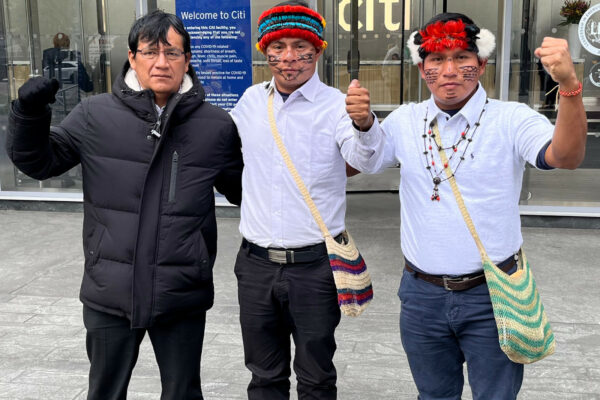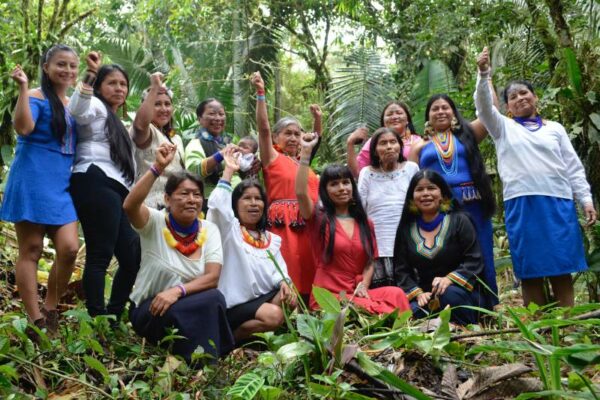Indigenous peoples from around the world gathered in Anchorage, Alaska April 20-24 to exchange their knowledge and experience in confronting the impacts of climate change, and to develop key messages and recommendations to be articulated to the world at the Conference of Parties (COP) to the UN Framework Convention on Climate Change in Copenhagen, Denmark in December 2009.
The Summit highlighted three interrelated facts with respect to indigenous peoples and climate change: 1) that indigenous communities are on the front lines of climate change and will continue to bear much of the burden of future projected impacts; 2) Yet indigenous peoples share little responsibility for the causes and drivers of climate change; and 3) That traditional indigenous knowledge, customs, and ways of life may hold the solutions to climate change.
At the Summit the voice and vision of indigenous peoples of the Amazon was represented by COICA, the umbrella group of indigenous organizations for all nine Amazonian countries. COICA representatives, with support from Amazon Watch, highlighted the unique role the Amazon Basin plays in regulating global climate and the environmental and human rights issues faced by Amazonian indigenous groups at the hands of industrial drivers of climate change, such as oil, mining, and logging.
The Summit culminated in the Anchorage Declaration, (full text link below) which declares:
“We are deeply alarmed by the accelerating climate devastation brought about by unsustainable development. We are experiencing profound and disproportionate adverse impacts on our cultures, human and environmental health, human rights, well-being, traditional livelihoods, food systems and food sovereignty, local infrastructure, economic viability, and our very survival as Indigenous Peoples.
Mother Earth is no longer in a period of climate change, but in climate crisis. We therefore insist on an immediate end to the destruction and desecration of the elements of life.”
The declaration calls upon the upcoming fifteenth meeting of the Conference of the Parties to the UNFCCC to support a binding emissions reduction target for developed countries (Annex 1) of at least 45% below 1990 levels by 2020 and at least 95% by 2050.
The declaration also calls for the implementation by nation states of the United Nations Declaration on the Rights of Indigenous Peoples (UN-DRIP), the right to Free and Prior Informed Consent (FPIC) and the right to say “no”, a moratorium and eventual phase out of fossil fuels, and warns against “false solutions” to the climate change crisis such as agro-fuels, emissions trading via the carbon market, “clean coal”, among others.
Also subject of much debate was the new United Nations REDD mechanism (Reducing Emissions from Deforestation and Degradation), which may find its way into a post-Kyoto climate agreement. The controversial mechanism, which seeks to provide financial incentives to developing countries to reduce carbon emissions from deforestation and forest degradation, has been highly criticized because many components of the proposal to date, such as indigenous rights, land tenure, and financial incentives that recognize and reward historic and continuing conservation of forests by indigenous peoples, have yet to be guaranteed. Equally controversial is one of REDD’s proposed financial mechanisms – emissions trading via the carbon market, which could provide incentives for companies in the global north to resist making necessary changes to lower carbon emissions.
The Anchorage Declaration states:
“All initiatives under Reducing Emissions from Deforestation and Degradation (REDD) must secure the recognition and implementation of the rights of Indigenous Peoples, including security of land tenure, recognition of land title according to traditional ways, uses and customary laws and the multiple benefits of forests for climate, ecosystems, and peoples before taking any action.”













